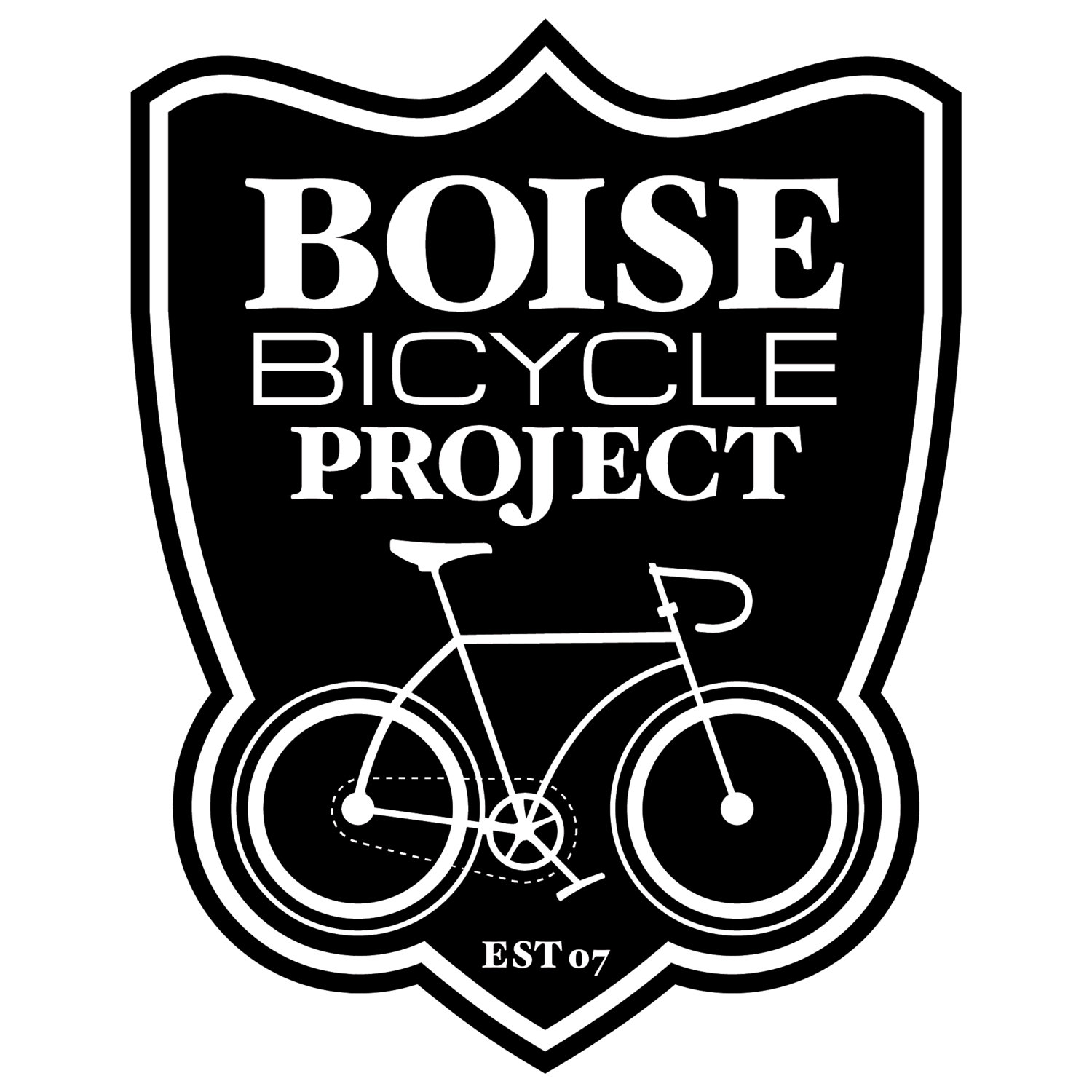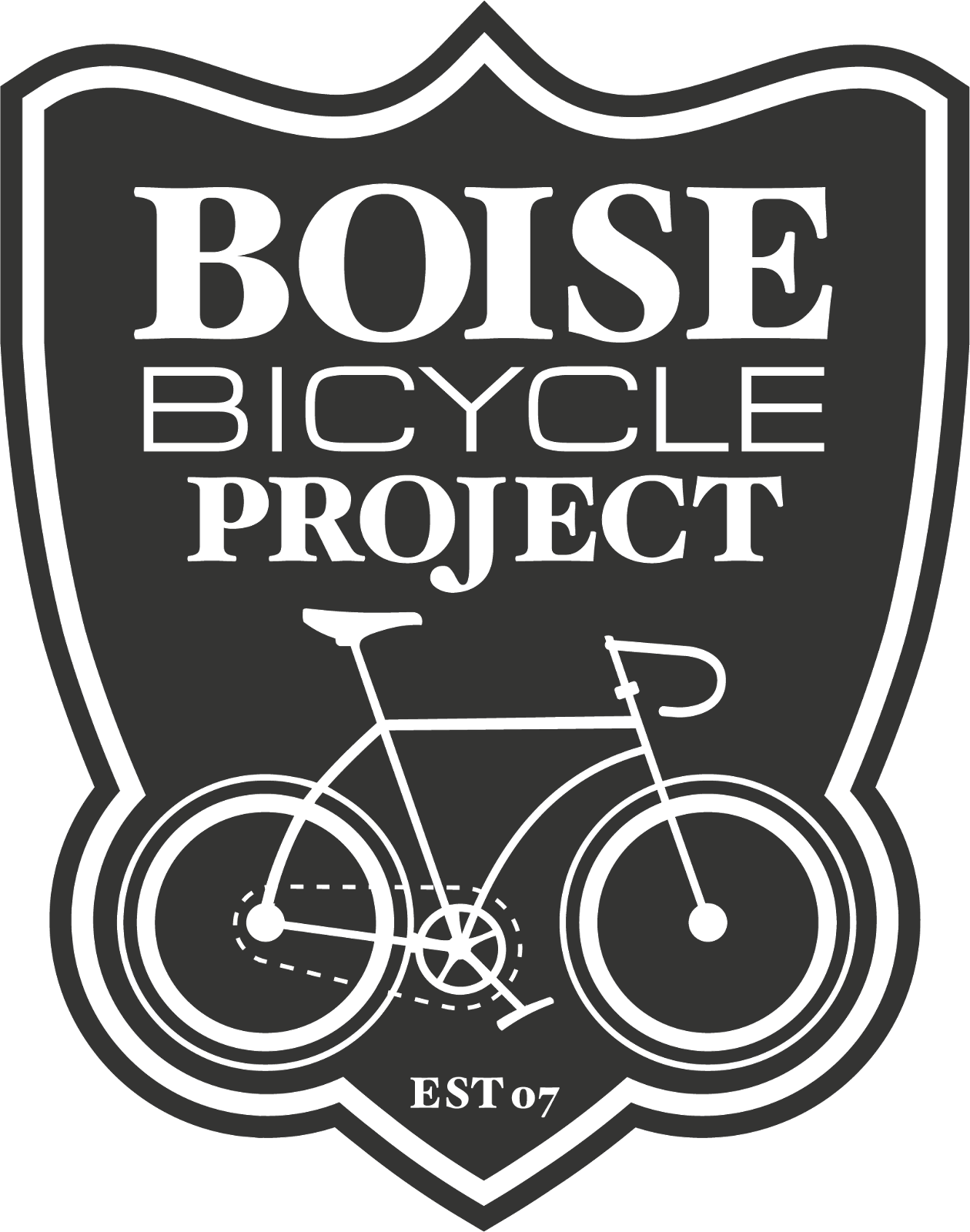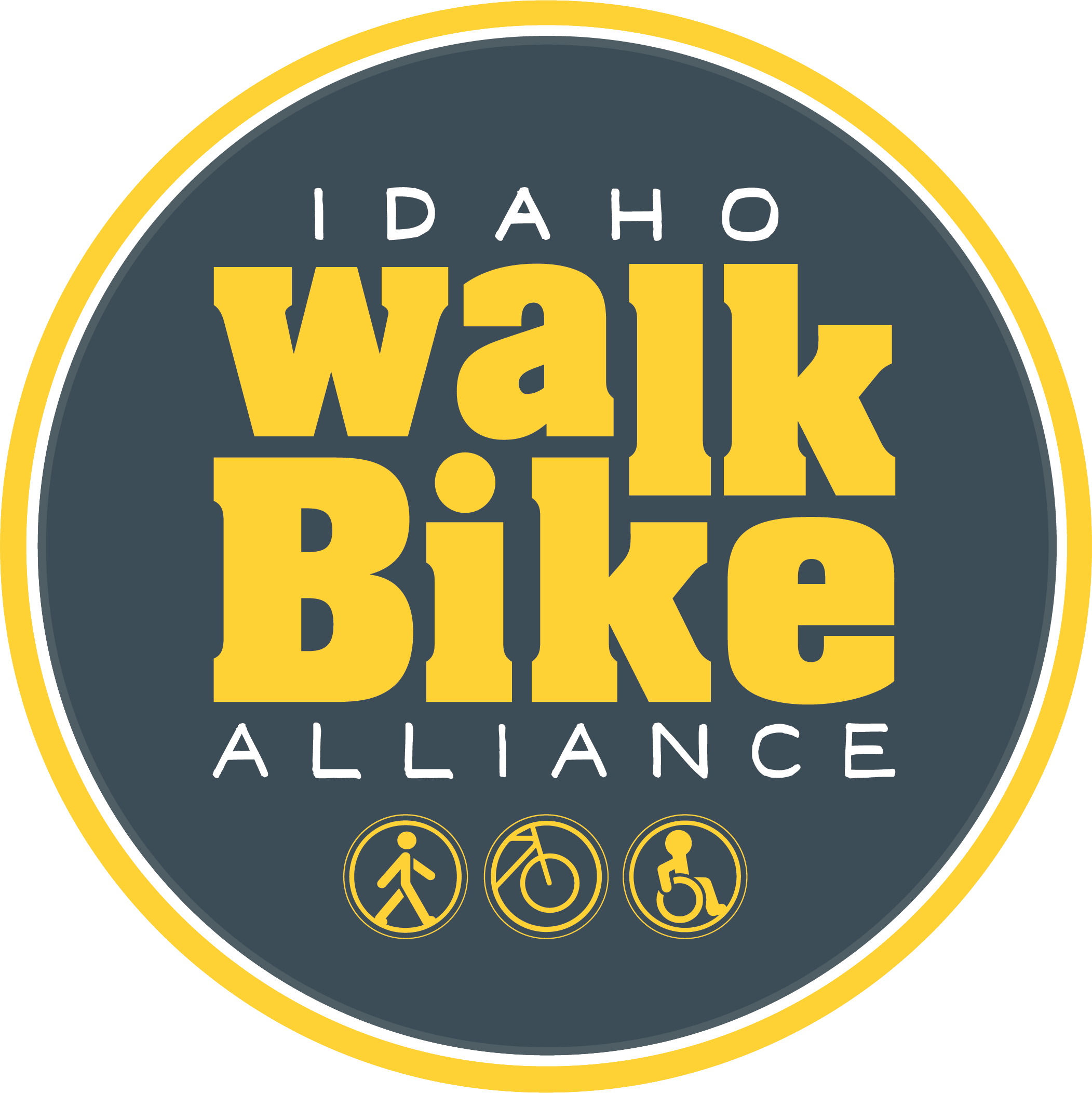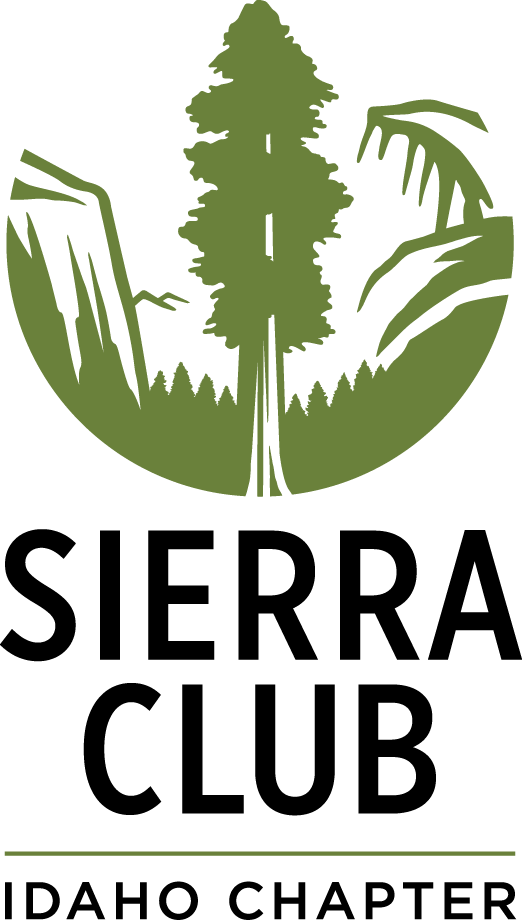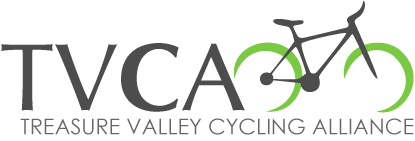ACHD Commissioner Forum
From left: BBP Board Director Molly Garner, BBP Board Director Marcus Batson, Candidate Kent Goldthorpe, Candidate Neil Durrant, Candidate Miranda Gold, BBP Director of Bicycle Advocacy Nina Pienaar.
ACHD Commissioner Forum
On Thursday, October 6th, the Boise Bicycle Project hosted the 4th Bi-annual ACHD Commissioner Forum. The event was held on a sunny Fall evening at the BSU Outdoor Amphitheater just off the Greenbelt, with evening commuters making a perfect location for bicycle and pedestrian discussions.
About the forum
The ACHD Commission seats in both Districts 3 and 4 are on the ballot for the 2022 election, and five candidates are running for the two seats. In District 3 (northern Boise, Garden City, Eagle, and Star), incumbent Commissioner Mary May is facing challengers Miranda Gold and Payton Kahn. And in District 4 (southern Ada County, including Kuna), incumbent Commissioner Kent Goldthorpe is facing challenger Neil Durrant. The ACHD Commissioner Forum is an important opportunity for citizens to learn about candidates’ stances on the issues facing Ada County. The Commissioners elected will shape the streets we use every day for the next four years.
Three of the five candidates attended the forum. Unfortunately, we were informed two days before the event that Commissioner Mary May would not be participating in the forum, and we have been unable to get in contact with Candidate Payton Kahn.
The Forum
The forum was opened by BBP Board Members Marcus Batson and Molly Garner. Molly - a year-round all-weather commuter cyclist - discussed her growing confidence commuting by bike and detailed the safety improvements she’s made to her Specialized Turbo. Her presentation highlighted the importance of ACHD policies and why the election is so important to ensuring safe and accessible streets. Marcus, an avid commuter and recreational cyclist, chose to call Boise home because of its bicycle friendly infrastructure. Marcus also highlighted the role of ACHD and BBP’s involvement in community cycling efforts.
We gave each candidate three minutes to complete their opening remarks. To understand the candidates’ values and goals and what we might expect of their four years in office we started the forum with: What are three areas you would like to focus on as an ACHD Commissioner?
Candidate Goldthorpe was randomly selected to provide the first response, and opened the discussion by saying that “there are so many things that need to be done, that it’s really hard to prioritize them.” Number one on Candidate Goldthorpe’s list is, “to ensure that ACHD’s funding doesn’t go to pot” and his second key priority is “to continue the safe routes to school program”.
“One of my priorities is looking [to] the future,” says Candidate Durrant. Candidate Durrant also wants to make sure “that our transportation needs [that] we see today are going to work in the future”. Candidate Durrant continues by saying that we need to ensure “that roads are safe and sound transportation” is available to all.
Candidate Gold outlined three key areas that she would like to focus on as an ACHD Commissioner, she envisages “safer streets for everybody” and “making sure that all users of all abilities are able to get to where they need to get safely”. Candidate Gold’s second priority is to focus on a “multi-modal transportation” system. And lastly, Candidate Gold advocates for “coordinated growth”. She believes “that we need to get [our growth] aligned so that we can better facilitate the kind of communities that align with our vision”.
Next, we tackled the issue of street safety and speed policy head on: If hit by an automobile at 20 mph a pedestrian or bicyclist has a 95% chance of surviving the crash, at 30 mph the chance of survival drops to 55%, and at 40 mph the chance of survival drops to only 15%. Would you support the lowering of speed limits in neighborhoods and other areas of high pedestrian activity?
All three candidates clearly stated that they are open to lowering speed limits in neighborhoods and high pedestrian areas to improve road safety. A follow up to the question, prompted each candidate to provide examples of streets or neighborhoods in their respective districts that they would consider reducing speed limits on.
Candidate Goldthorpe would like to focus on “Warm Springs in the historical district and also Warm Springs out towards Paris Ranch [which either] need to be either reclassified and re-speed limited or just re-speed limited.”
Candidate Durrant did not provide any specific areas but suggested that areas of high pedestrian activity such as schools, shopping centers, and streets leading into major subdivisions should be considered for speed reductions.
Candidate Gold drew on conversations with “hundreds and hundreds of voters, and [found that] speeding is a consistent concern and a constant issue that folks are facing in their neighborhoods.” She also notes that she has received a lot of “feedback about 32nd Street, Castle, Eagle Road north of the Highway 44 Eagle Road intersection”.
ACHD Commissioner Forum underway at the BSU Outdoor Amphitheater.
Obviously, speeding is a constant concern and one that we need to address to ensure pedestrian safety. However, another way to improve pedestrian and cyclist safety is with better access to non-motorized transportation (NMT) infrastructure. The following question addressed bicycle related infrastructure and projects that have been proposed in the past: In 2014, a protected bike lane project requested by the City of Boise on Main and Idaho Streets, was removed after a one month pilot project and a split decision from ACHD Commissioners. Would you entertain reconsidering the Main and Idaho project if requested by the City of Boise today?
All three candidates answered with a resounding yes.
A follow up question was: What is ACHD’s responsibility in implementing projects requested and prioritized by each of the Cities and agencies it works with?
Candidate Gold described how “cities all go through their process of prioritizing their projects. And then submitting it to ACHD for their Five-Year Integrated Work Plan, and then the ACHD prioritizes their projects”. Candidate Goldthorpe described how ACHD Commissioners must walk a thin “tightrope” and need to take all priorities and evaluations into account. The projects are then “reprioritize[d] based on locations in the county [and] the budget that we have”, and then “try to make it work”. Lastly, Candidate Durrant agreed with Candidate Goldthorpe that all projects need to be “ranked and scored”, and we need to “have a look at those, and have an in depth look at really why the projects are being requested and what impacts they are going to have, or what benefits they are going to have by making these changes”.
Climate change is on everyone’s mind, and pollution is a constant reminder that we need to make changes to our transport system to help reduce emissions. The Idaho Chapter of the Sierra Club submitted a question related to climate change and pollution experienced in the Treasure Valley region.
The air quality in the Treasure Valley was recently rated as an F by the American Lung Association, and this rating is only set to be worse as the region's population grows. Studies have shown that poor air quality affects vulnerable groups the most. How will you leverage being an ACHD commissioner to improve air quality in Ada County for all members of our community?
The candidates had some mixed opinions on the cause of the pollution in the Valley. Candidate Durrant noted that while air quality is an issue, the pollution we are experiencing does not “stem from this Valley [and if] you look at our vehicles, most newer vehicles and emissions that come [from] them are very good”. Candidate Gold, however, thinks that we can combat pollution levels with “multi-modal transport goals” and that we need “to just have ACHD be really supportive of putting in the appropriate infrastructure and supporting transit goals for our communities”. Candidate Goldthorpe disagrees with the F rating and thinks the data is outdated.
Perhaps all three answers are correct, but one way that all Ada County residents can make a difference is by using alternative transportation, such as cycling, walking, or riding the bus.
Boise’s public transport system isn’t great, but what if it was… This brings us to the final question of the forum: Idaho is one of the only states in the country without dedicated funding for public transportation. What is ACHD's role in expanding access to public transportation and public transit infrastructure?
Candidate Goldthorpe kicked off the final discussion by saying that “the commission since I have been on it has been 100% in support of all of Boise’s initiatives to put State Street on the map as a reliable profitable route” and that there has been “no appetite to create a permanent funding solution for mass transit [from the state legislature], and I don’t know if that’s going to change any time soon”. Candidate Durrant followed by commenting that “this is something that I’ve looked at for a long time [...] whether that’s looking at rail, or better transportation through buses, I think ACHD has taken the charge with their Club Red vans and helping with the carpooling areas”. But, he thinks “working with our state legislators” is the way to go “because it’s not just an issue affecting Ada County, it's a statewide issue, especially here in the Treasure Valley [region]”. Candidate Gold thinks that “partnering with other agencies on grants is a great way to support transit, [while] also supporting the infrastructure and the right of way. And also, ACHD can lobby the legislature for things like local option [sales] tax so that we have the ability on a really local level to decide what we would like to invest in for our communities”.
An accessible and reliable public transport system is integral to any city. Public transportation not only provides a safe way for all residents to get around town, but it also helps reduce carbon emissions and reduce traffic congestion.
And with that, we wrapped up the questions for the forum. Each candidate had 90 seconds to give a closing statement, where the audience was thanked for attending, and goals were restated. With just over 50 community members joining for the discussion, the forum was a huge success and we would like to give a big shout out to everyone that came to the event. Thank you to BBP Board members Molly Garner and Marcus Batson, the ACHD candidates, community members, and of course our partners - Idaho Walk Bike Alliance, Treasure Valley Cycling Alliance, Idaho Chapter of the Sierra Club, and Babe Vote.
Please follow the link to the full transcript and recording if further information is needed. The 2022 election is coming up on November 8th, so go vote! Because every vote counts!
